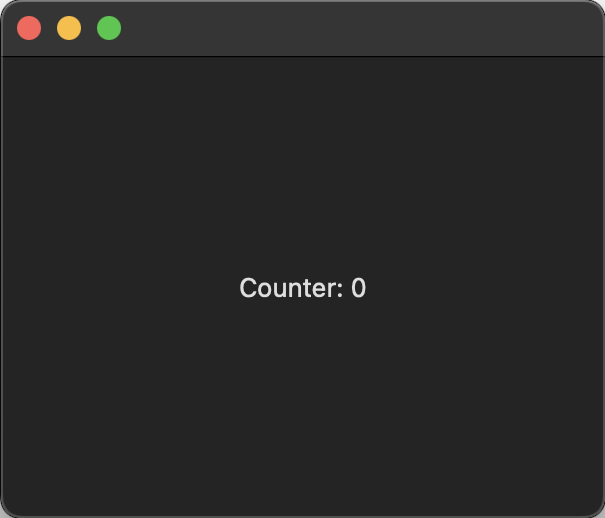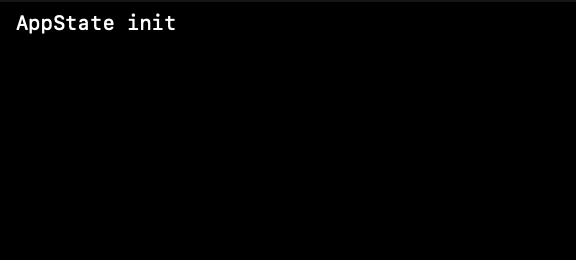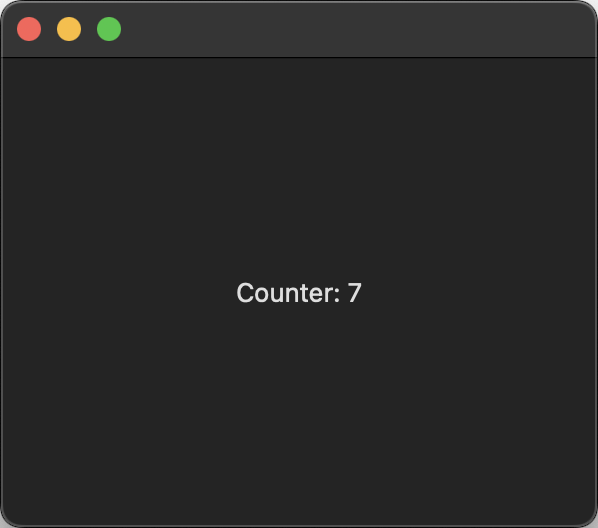StateObject Outside of SwiftUI
Let’s explore what to do if an existing application has a StateObject and there’s a need to pass events and information from the ApplicationDelegate into it. We’ll use a macOS application as an example since this scenario is more common for it.
@main
struct MacOSApp: App {
@StateObject var appState = AppState()
var body: some Scene {
WindowGroup {
ContentView()
.environmentObject(appState)
}
}
}
class AppState: ObservableObject {
@Published var count: Int = 0
}
struct ContentView: View {
@EnvironmentObject var appState: AppState
var body: some View {
Text("Counter: \(appState.count)")
}
}
Let’s add an AppDelegate and pass the ObservableObject to it.
@main
struct MacOSApp: App {
@NSApplicationDelegateAdaptor(AppDelegate.self) var appDelegate
@StateObject var appState = AppState()
init() {
appDelegate.appState = appState
}
var body: some Scene {
WindowGroup {
ContentView()
.environmentObject(appState)
}
}
}
class AppState: ObservableObject {
@Published var count: Int = 0
}
struct ContentView: View {
@EnvironmentObject var appState: AppState
var body: some View {
Text("Counter: \(appState.count)")
}
}
class AppDelegate: NSObject, NSApplicationDelegate, NSWindowDelegate {
var appState: AppState?
func applicationDidFinishLaunching(_ notification: Notification) {
guard let window = NSApplication.shared.windows.first else { return }
window.delegate = self
}
func windowWillStartLiveResize(_ notification: Notification) {
appState?.count += 1
}
}
Unfortunately, you cannot pass AppState in init(), so we’ll set it up using late binding. Let’s check how the application works in its current state by resizing the window and expecting the counter to update.The first issue that arises is that the UI does not update, even though windowWillStartLiveResize() was called.


Notice the red error in the console:
Accessing StateObject's object without being installed on a View. This will create a new instance each time.
Let’s see what’s happening by adding a print statement in the AppState initializer.
class AppState: ObservableObject {
@Published var count: Int = 0
init() {
print("AppState init")
}
}
Upon launching, the console shows two init calls, which is what the error was warning about. This means the event is being sent to a different instance of AppState that is not tied to the View.

Let’s try to restrict the creation of a second instance by making AppState a singleton.
class AppState: ObservableObject {
@Published var count: Int = 0
private init() {
print("AppState init")
}
static let shared = AppState()
}
struct MacOSApp: App {
// ...
@StateObject var appState = AppState.shared
}
Now, only one instance of the object is created, but the error remains.

Of course, leaving such an error is unacceptable even if the application works as expected. There’s no guarantee that the application will function correctly in all scenarios in the future. The most elegant solution is to replace the ObservableObject protocol with the @Observable macro — a more modern approach for tracking changes. To do this:
- Remove the ObservableObject protocol.
- Remove the @Published wrappers.
- Add the @Observable macro to the AppState class.
- Remove @StateObject for appState property.
@main
struct MacOSApp: App {
@NSApplicationDelegateAdaptor(AppDelegate.self) var appDelegate
let appState = AppState()
init() {
appDelegate.appState = appState
}
var body: some Scene {
WindowGroup {
ContentView()
.environment(appState)
}
}
}
@Observable
class AppState {
var count: Int = 0
init() {
print("AppState init")
}
}
struct ContentView: View {
@Environment(AppState.self) var appState
var body: some View {
Text("Counter: \(appState.count)")
}
}
class AppDelegate: NSObject, NSApplicationDelegate, NSWindowDelegate {
var appState: AppState?
func applicationDidFinishLaunching(_ notification: Notification) {
guard let window = NSApplication.shared.windows.first else { return }
window.delegate = self
}
func windowWillStartLiveResize(_ notification: Notification) {
appState?.count += 1
}
}
Now we see a clean console without errors, a single instance of the object without using a singleton.

And a correctly updating UI.
